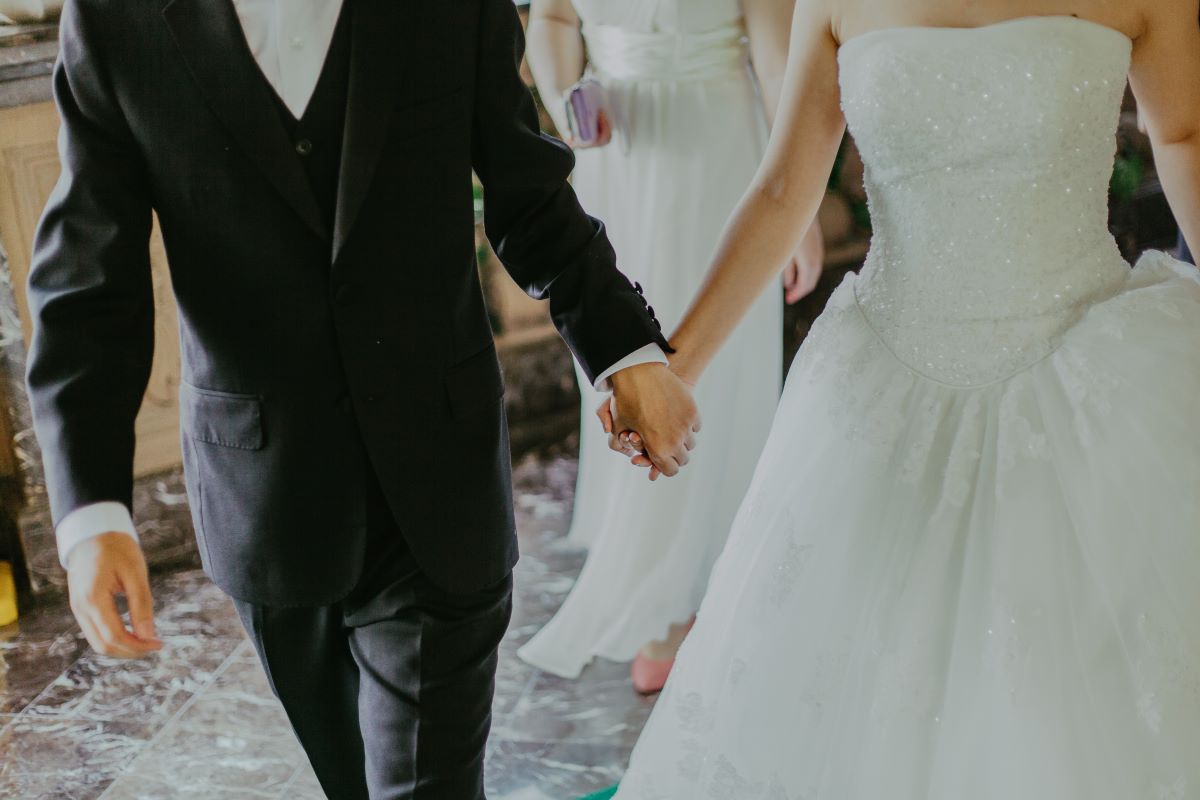Weddings are a life-changing event. Most women dream about their wedding day, regardless of their relationship status. In fact, studies show that an average woman in the U.S. starts to daydream about her wedding day as early as she turns 19 years old. On the other hand, men, surprisingly, are 80% more likely than women to think about what they want their big day to look like while they are dating.
In the U.S. alone, over 2.4 million weddings are performed each year. But as the coronavirus continues to spread rapidly, more and more couples are putting a halt on wedding plans this year. Originally, around 450,000 weddings in the U.S. were planned for March until May of this year, according to WeddingWire and The Knot. However, about 4% of couples in the U.S. have already canceled their weddings altogether this year, according to recent statistics.
While the figure may seem insignificant, it is still equivalent to thousands of wedding cancellations. On top of this, most couples are postponing their weddings until the situation improves.
Such postponements and cancellations are putting the U.S. wedding industry at risk, causing immense financial losses as well as unemployment.
However, some brave couples are still pushing through with their wedding plans this year despite the COVID-19 pandemic. If you are one of them, here are some ways that you can effectively and safely plan for your “coronavirus wedding” with minimal stress:

1. Consider safety protocols.
Make sure to follow local and national guidelines on public gatherings if you wish to move forward with your wedding this year. Safety protocols differ for every state, especially for public events like weddings. Hence, it would be best to consult with your local authorities to ensure adherence. You are also advised to regularly check the updated global guidelines issued by the Center of Diseases and Control (CDC).
On your wedding day, require all your guests, vendors, and other people involved to undergo temperature checks and wear face masks or face shields before entering the venue. Ask the venue management to provide adequate sanitation tools like rubbing alcohols, hand sanitizers, or even a handwashing station. Make sure to incorporate social distancing in the venue layout, where guests should be seated at least six feet apart.
Additionally, limit the number of guests you invite to your wedding. This will help you ensure everyone’s safety, as well as make your wedding even more meaningful and intimate. You may refer to your local protocols on the number of guests allowed for public gatherings.
2. Hire a wedding planner.
Planning a wedding can be overwhelming and stressful, let alone in the middle of a global pandemic. Hiring a professional wedding planner can help lessen such a burden. Wedding planners can help you book and coordinate with the right vendors, especially when it comes to safety measures. They can also help you manage your finances and provide you with fresher ideas on how to conduct your wedding during a pandemic.
3. Book a virtual fitting for your wedding dress in advance.
Every bride-to-be dreams about her wedding dress. However, physical fittings may not be feasible due to lockdowns and social distancing measures. Consider booking a virtual appointment with a wedding stylist to see your options and have them shipped to your home for fitting. Some wedding dress shops offer such an option.
You may also opt to purchase a ready-made wedding dress, especially if you want to be more cost-efficient.
4. Choose a singular location, if possible.
While some states are gradually reopening, most governments are still limiting the movement of people in a specific area. With this, it is best that you book a singular location that can accommodate your wedding ceremony, reception, as well as short-term or overnight stays. Such a strategy can help you save more time and money, as well as lessen transportation logistics.
5. Try to get as many services as you can with one vendor.
Some wedding suppliers offer several services in one package. Taking advantage of such offerings can help you save on costs, streamline your wedding planning, as well as limit your interactions with other people.
6. Have a back-up plan.
While the future remains uncertain, wedding experts advise couples to always have a back-up plan ready. Aside from picking a single target date, consider setting a tentative second date as well with your vendors. Some vendors offer such an option, considering the current circumstances of the pandemic.
Planning for your wedding during a global crisis can be extremely challenging. However, tying the knot in the middle of a pandemic is not impossible, if you embrace these simple tips.
